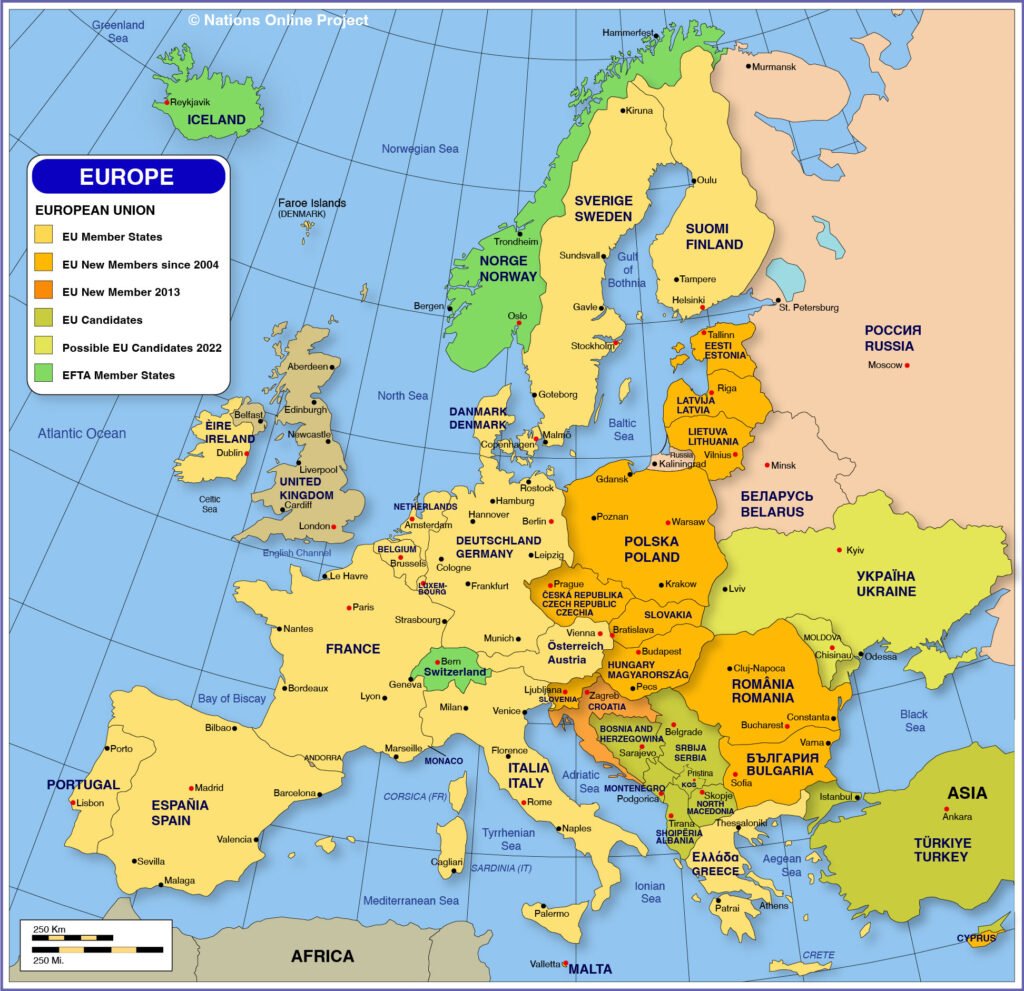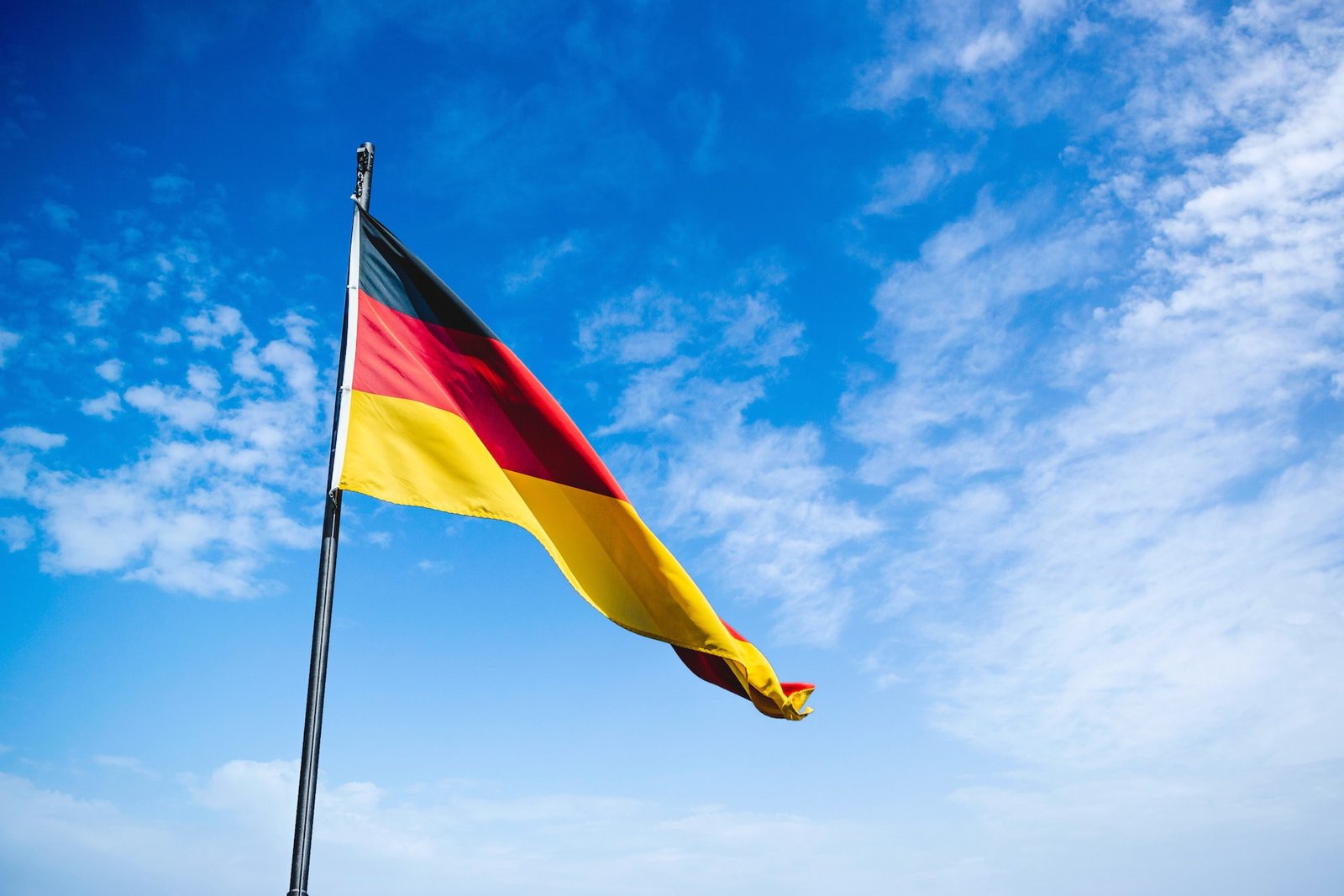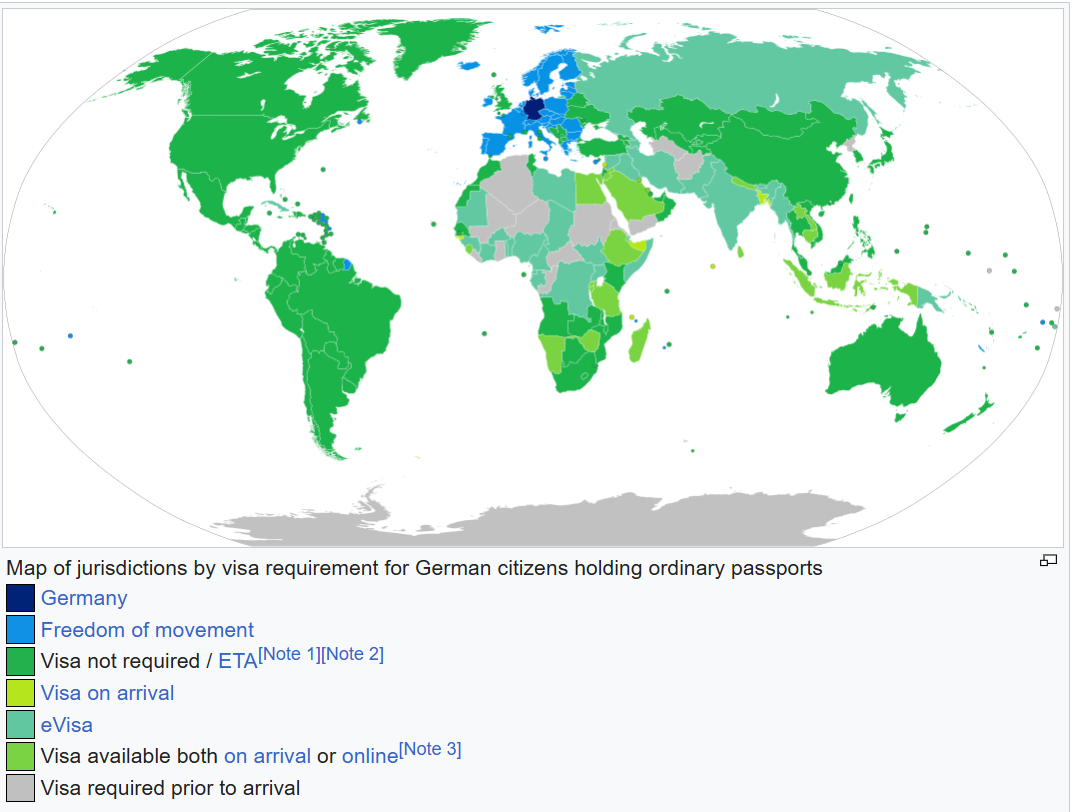How To Get Residency in Germany: A Comprehensive Guide
Capital: Berlin
Population: 83,491,249 (2025, 19th)
Ethnic groups: German 86.3% , Turkish 1.8%, Polish 1%, Syrian 1%, Romanian 1%
Area: 357,600 km2 (63rd)
Offical Language: German
Currency: Euro
GDP per Captial (PPP): $73,550 (2025 estimated, 19th)
Human Development Index: 0.959 (2023, 5th)

Country Profile:
Germany is situated in Central and Western Europe and ranks fourth in economic output globally. It is a country rich in cultural and historical resources, with a highly developed and diversified economy.
Germany is also the second largest destination for immigrants, next only to the United States.
Visa & Immigration System:
The legal framework governing the entry, stay, and economic activity of non-European Union (EU) and non-European Economic Area (EEA) citizens in Germany is the Residence Act (Aufenthaltsgesetz – AufenthG). This complex, yet highly structured system is designed to control and organize immigration, balancing the Federal Republic of Germany’s economic needs and humanitarian obligations with its capacity for admission and integration.
At its core, the system requires every non-EU national intending to stay for more than 90 days to possess a valid Residence Title (Aufenthaltstitel). This title is a formal legal status that dictates the purpose and duration of the stay, as well as the holder’s rights, particularly regarding access to the labour market.
Residence Titles are physically issued as an electronic Residence Permit (eAT), a plastic card format containing a chip that stores personal, biometric, and conditional data.
The German residency structure is divided into two major categories that define the duration and scope of the foreigner’s rights: Temporary Residency and Permanent Residency.
1. Temporary Residence Permit (Aufenthaltserlaubnis):
The Aufenthaltserlaubnis is the standard, time-limited permit issued for a specific purpose (Zweck des Aufenthalts). It is always tied to the reason for the stay and can be extended as long as the underlying purpose still exists (e.g., the job is ongoing, the student is still enrolled).
The Residence Act explicitly categorizes these permits based on the purpose of residence:
A. Residence for Education and Training:
This category covers individuals seeking academic or vocational qualifications in Germany.
-
Student Permit (§ 16b AufenthG): Issued to those admitted to a German university. The permit is initially granted for one to two years and can be extended for the duration of the studies.
-
Vocational Training Permit (§ 16a AufenthG): Issued for recognized apprenticeships (Ausbildung) or specific preparatory measures.
-
Job Seeker Post-Study: After successfully completing a German degree, graduates can obtain a temporary residence permit to seek employment corresponding to their qualification, usually for up to 18 months.
B. Residence for Economic Activity (Employment):
This is the most dynamic area, constantly adapting to Germany’s need for skilled labour.
-
Skilled Worker Permit (§ 18a/b AufenthG): Issued to non-EU professionals who possess a recognized academic degree or vocational qualification and have a concrete job offer in Germany.
-
The EU Blue Card (§ 18g AufenthG): This is the most privileged temporary permit for highly qualified workers. It is granted to university graduates with a binding job offer that meets a specific minimum salary threshold (which is lower for shortage occupations).
-
Opportunity Card (Chancenkarte) (§ 20a AufenthG): A new points-based permit that allows non-EU skilled individuals to enter Germany without a job offer and search for employment for up to one year. This directly addresses labour shortages by facilitating job-seeking entry.
-
Self-Employment Permit (§ 21 AufenthG): This permit covers two types of independent work:
Business Founder/Entrepreneur (§ 21 Abs. 1 AufenthG): For those establishing a commercial business (Gewerbe). The criteria are strict and focus on the benefit to the German economy, typically requiring:
1. A demonstrable economic interest or regional need for the business.
2. The business activity is expected to have a positive impact on the economy.
3. Secure financing is in place (through capital or a loan commitment).
4. If the applicant is over 45, proof of adequate retirement provisions is mandatory. Successful entrepreneurs may qualify for the Settlement Permit after only three years.
Freelancer (Freiberufler) (§ 21 Abs. 5 AufenthG): For liberal professions (e.g., artists, writers, doctors, architects). The requirements are generally less stringent than for entrepreneurs, focusing instead on:
1. The ability to secure one’s livelihood from the freelance activity.
2. Possession of any required professional licenses or qualifications.
3. For applicants over 45, proof of adequate retirement provisions is also required.
C. Residence for Family Reasons:
This allows core family members (spouses, dependent children) to join a legal resident or German citizen in Germany (Familiennachzug). Requirements typically include sufficient living space, proof of financial means, and often a basic level of German proficiency (A1 level) for the spouse.
D. Residence on Humanitarian, Political, or International Grounds:
This covers recognized refugees, asylum seekers, or individuals granted protection status.

2. Permanent Residence Permits:
These permits grant an indefinite right of residence and generally unrestricted access to the German labour market, removing the need for frequent renewals and the connection to the initial purpose of stay.
A. The Settlement Permit (Niederlassungserlaubnis):
This is the standard German permanent residency status. To qualify for the Niederlassungserlaubnis, the applicant must demonstrate deep integration and self-sufficiency. General requirements typically include:
1. Five Years of Legal Residence: Holding a temporary residence permit for at least five years.
2. Secure Livelihood: Proof of consistent income without relying on public benefits.
3. Pension Contributions: At least 60 months of compulsory contributions to the statutory pension insurance scheme (or comparable private scheme).
4. Language Proficiency: A B1 level certificate in German (Common European Framework of Reference for Languages).
5. Knowledge of the Legal and Social Order: Demonstrated by passing an integration course test (Leben in Deutschland).
6. Sufficient Living Space: Proof of adequate housing for the applicant and their family.
7. Accelerated Paths: Certain categories, such as EU Blue Card holders, highly qualified workers, and spouses of German citizens, benefit from significantly reduced waiting times (e.g., 27 months or 3 years).
B. The EU Long-Term Residence Permit (Daueraufenthalt-EU):
This permit is virtually identical to the Niederlassungserlaubnis regarding rights within Germany (indefinite stay, work access). The main distinction lies in its added benefit of enhanced mobility: it grants the right to live or work in other EU member states (outside of Denmark, Ireland, and the United Kingdom) under simplified conditions.
The eligibility is generally stricter, requiring a full five years of legal residence and 60 months of pension contributions, with fewer opportunities for accelerated qualification than the Settlement Permit.
Family Reunification:
Germany maintains strong family reunion policies. Spouses, registered same-sex partners, and unmarried minor children can generally join the skilled worker, provided there is proof of the relationship, adequate living space, and a secured livelihood. While spouses typically need to prove basic German language skills (A1 level), this requirement is generally waived if the skilled worker holds an EU Blue Card.
A crucial expansion under the Skilled Immigration Act is the new provision allowing skilled workers who receive their initial residence permit on or after March 1, 2024, to bring their parents and parents-in-law to Germany, provided the family’s livelihood, including health insurance, can be fully secured without relying on public funds.
Citizenship:
To apply for naturalization (Einbürgerung), you must meet the following general conditions, which are similar to, but stricter than, the requirements for a Settlement Permit:
1. Reduced Residency Period: You must have been a legal and habitual resident of Germany for a minimum of five years. All time spent on a Residence Permit for self-employment counts toward this period.
The residency requirement can be reduced to just three years if you can demonstrate special integration achievements, such as:
- Very good German language skills (C1 level or higher).
- Exceptional professional or academic achievements.
- Significant voluntary work (ehrenamtliche Tätigkeit).
2. Legal Status: You must possess a permanent right of residence (Settlement Permit) or a comparable long-term residence title at the time of application.
3. Secured Livelihood: You must be able to financially support yourself and your dependent family members without relying on public benefits (e.g., Citizen’s Allowance / Bürgergeld). As a self-employed person, this is proven by your income tax assessments.
4. Language Skills: Proof of sufficient German language skills at a minimum of B1 level (CEFR), typically through the German Test for Immigrants (Deutsch-Test für Zuwanderer, DTZ) or equivalent certificates.
5. Knowledge of the Legal and Social Order: You must demonstrate knowledge of the German legal system, society, and way of life. This is generally proven by passing the Naturalization Test (Einbürgerungstest), which covers political and social topics in Germany.
6. Commitment to the Basic Law: You must declare your commitment to the free and democratic basic order of the Federal Republic of Germany.
7. Clean Criminal Record: You must not have been convicted of a serious criminal offense.
Passport Power:
Germany recognizes dual citizenship, and its passport is ranked 4th globally. Passport holders have free access (either visa-free or visa-on-arrival) to 188 countries and regions globally (Now 2nd, 2025).

Official Links:
ZAB:https://zab.kmk.org/en/dab
Make it in Germany: https://www.make-it-in-germany.com/en